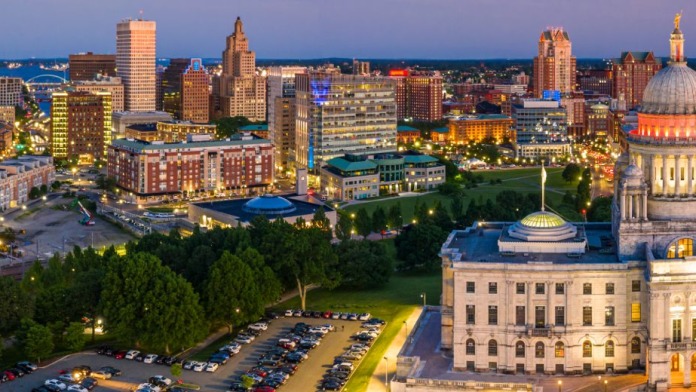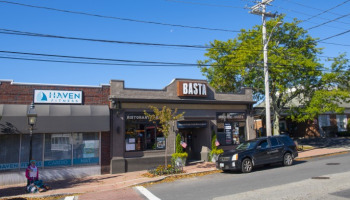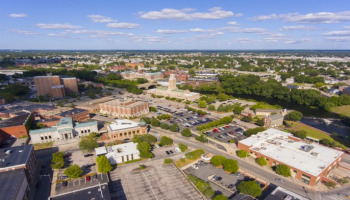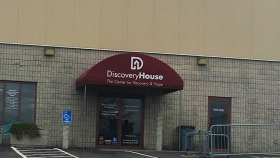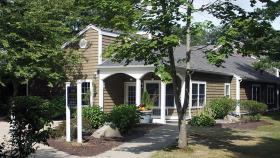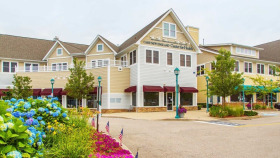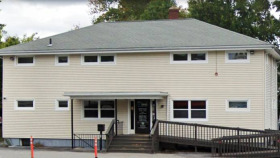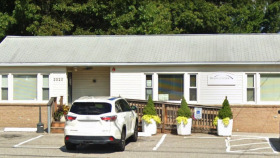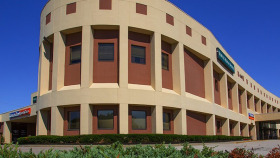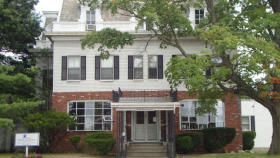Expert Insights
My work in substance abuse recovery services in Rhode Island as a mental health counselor has shown me firsthand addiction’s devastating grip. I’ve never met anyone who chose to become addicted. Dependence usually sneaks in subtly, as personal problems escalate without warning, and withdrawal fears, stigma, and treatment barriers become obstacles on the way to healing.
According to the Rhode Island Department of Health, 404 Rhode Islanders lost their lives to drug overdoses in 2023. Recently, the state pioneered overdose prevention centers to reduce harm, a much-needed initiative.
While it’s too early to draw absolute conclusions, people using these centers are to enter treatment, up to 30%, as reported by WebER Renew. We must continue meeting people where they are to facilitate recovery.
~ Serg Valencia, MD, MS
How Much Does Drug Rehab Cost in Rhode Island?
Rhode Island is ranked 41st nationwide in terms of addiction treatment affordability, with an average cost of drug and alcohol rehab of $58,755 (without insurance).
- Medical detox is the most expensive, with an average cost of $144,853
- Long-term inpatient drug rehab in Rhode Island costs an average of $51,848
- Outpatient addiction treatment in Rhode Island costs an average of $8,615
- Outpatient methadone treatment is the most affordable, with an average cost of $7,655
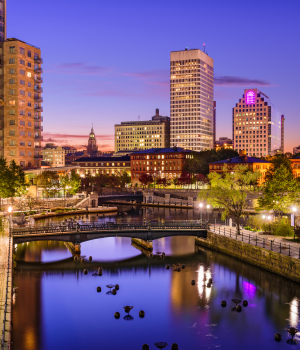 Since there is no one-size-fits-all rehab program, the cost of a drug or alcohol rehab in Rhode Island also varies based on the program you choose. Inpatient is typically more expensive than outpatient treatment, and the longer the program, the more it will cost.
Since there is no one-size-fits-all rehab program, the cost of a drug or alcohol rehab in Rhode Island also varies based on the program you choose. Inpatient is typically more expensive than outpatient treatment, and the longer the program, the more it will cost.
Amenities and location also play a factor. For example, a rehab that feels more like a spa will cost more than a standard facility, and a beachfront location may also add to the overall price.
While private insurance can help keep costs down, you will want to find a rehab that accepts your insurance provider and is considered in-network to avoid paying additional out-of-pocket costs. You can check your coverage by calling the number on the back of your insurance card.
You can also explore whether the rehab you’re interested in offers a rehab scholarship or a sliding scale payment option based on your income. Some private insurance plans will cover the cost of some types of addiction treatment. If you qualify, Medicaid and Medicare are also two federal government insurance programs that cover the cost of rehab.
Paying for Addiction Treatment in Rhode Island
As of 2024, there were over 70 drug rehab facilities across the state of Rhode Island. These facilities accept several payment methods. Of those treatment facilities, the following numbers reflect how many accept their respective payment methods:
The costs of addiction treatment can be a significant barrier to care, but there are solutions. There are 14 low cost or free addiction treatment centers in Rhode Island. Their services include inpatient and outpatient treatment options, including intensive outpatient treatment, relapse prevention and aftercare programs.
Private Pay and Insurance
According to the Affordable Care Act, signed into law in 2010, substance use disorders must be a covered benefit at the same parity of medical and surgical coverage for most insurance providers.
There are many major health insurance carriers in the state of Rhode Island. Here are some of the most common commercial and Marketplace insurance providers.
United Health Care
UHC in Rhode Island is one of the state’s Medicaid providers. Addiction treatment is covered at 100% under this plan. This means that testing, treatment and medications are covered with no out of pocket cost for those insured under this plan.
Blue Cross Blue Shield of Rhode Island
Alcohol and substance use disorders are covered benefits through Blue Cross Blue Shield of Rhode Island. Coverage and out of pocket costs will depend on the individual’s benefit plan. These services include inpatient and outpatient treatment, medication and case management. BCBS of Rhode Island has online services such as their Find a Provider service, which helps you find a provider or facility in your area. Moreover, their care management team can help you determine what the best treatment options are for your substance abuse needs.
Neighborhood Health Plan of Rhode Island
The Neighborhood Health Plan of Rhode Island offers commercial insurance through the marketplace as well as Medicaid plans. Inpatient and outpatient substance abuse treatment are covered services.
Coverage differs between plans. Individuals should contact their insurance provider to determine out-of pocket costs. Use of in network providers is recommended.
Medicaid
Medicaid provides health insurance coverage for residents who meet certain criteria such as income level, state residency, citizenship, and certain medical conditions. These Medicaid plans cover inpatient and outpatient substance use disorder treatment services at facilities that accept this type of insurance. Prior authorization is often required for services. Participants should contact their insurance provider to determine covered benefits, verify any out-of-pocket costs they may incur and to help them locate participating providers.
Medicare
Medicare provides insurance coverage for individuals over the age of 65 and in some cases, individuals with disabilities and certain medical conditions. Medicare Part A pays for inpatient substance abuse treatment. Clients are required to pay the same co pays they would be charged for any other type of inpatient hospitalization. For those with Medicare Part B, outpatient substance abuse treatment services from a clinic or hospital outpatient department are covered. Medicare Advantage plans can help pay for services such as prescription drug coverage that is not covered as a part of Part A or Part B. Services must be received at a Medicare participating facility or provider.
Military Insurance
TRICARE and VA benefits are accepted at participating providers throughout the state of Rhode Island. For those with alcohol and substance use disorders, the Veterans Administration offers inpatient and outpatient services at their clinics and hospitals at no cost.
Tribal Funding/Programs
All individuals of Native American or Alaska Native descent are eligible for health care and Medicaid through the Indian Health Service (IHS). Addiction recovery programs are covered services.
Other Low Cost Options
For those individuals without commercial insurance, government sponsored insurance or insurance through military service, some providers will offer alternatives. These include sliding scale payment options, no fee for service or financial aid. Clients will need to speak with service providers to confirm what options are available to them.
Resources
- Substance Abuse and Mental Health Services Administration. (2020). State Estimates of Substance Use and Mental Disorders.
- State of Rhode Island Department of Health. (2022). Drug Overdose Surveillance Data Hub.
- State of Rhode Island Department of Health. (2022). Addiction & Overdose.
- National Institute on Drug Abuse. (2020, June 3). How long does drug addiction treatment usually last?

